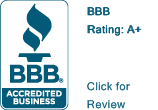The net present value test helps decide if you qualify for a loan modification for a Florida property. Several factors are considered, which a Florida foreclosure attorney explains.
If you are finding it difficult to pay your mortgage or you are at risk of foreclosure, there may be a solution. A loan modification may be allowed.
Overview of a Loan Modification
A loan modification provides you the opportunity to work with your lender so that the terms of your mortgage loan are changed. This can be done on a temporary or permanent basis.
Changes generally affect your monthly payment, term, and rate. The idea is to get your mortgage down to 31% of your gross income.
To qualify, you must meet certain requirements. For instance, if the value of your home is lower than the balance left on your mortgage, you may qualify. Or you may qualify if you are showing signs of being in default.
Impact of the Net Present Value Test
A loan modification might sound like the perfect solution to your problem. However, you will first need to pass a test called the Net Value Present (NVP) test. If you fail, there is significantly less chance that a loan modification will be done.
The purpose of the test is to benefit the lender, as it will help determine what is more profitable for them in the long-term. It basically comes down to 2 choices: allowing your monthly mortgage payments to be lowered with a loan modification or allowing the possibility of a foreclosure by not doing a modification on your loan.
One of the risks to a lender is that even if they do modify your loan, there is still the potential for the house to go into foreclosure later on. If this is a reasonable possibility, which the NVP formula can help determine, you will fail the test.
However, this is not the only item factored into the NPV formula. While you can get a general idea on some of the components, you should also know that the exact formula is not something a homeowner will be made aware of.
Here are some of the factors that may influence the outcome of the NPV test:
• legal fees and other costs associated with foreclosure of the house;
• average number of months left before it is likely to go into default again;
• worth of the home a year from now;
• likelihood of the owner catching up on mortgage payments if a loan is not modified; and
• current worth of the home.
In addition, the Real Estate Owned (REO) discount will be considered. This is a formula used by the government which estimates the home’s value in a year if it went into foreclosure and the REO discount, which are values and probabilities that are not made known to homeowners.
As a borrower, you will not be provided any information on the formula used or the estimates on your home’s value. The lender will not share with you whether they think your house is at risk of being defaulted on again in the future.
You are basically at the mercy of the NPV test results. Pass, you can save your home. Fail the test and you may be at serious risk of losing it unless you retain an experienced Florida foreclosure lawyer.
The good news is that even if you do not pass the NPV test and your request for a loan modification is denied, you can re-apply again in the next quarter. Of course, you could always secure legal help from a Florida foreclosure attorney.
To learn more about your rights as a homeowner, contact an attorney at The Neustein Law Group, P.A. We serve residents of Miami-Dade County, Broward County, Palm Beach County, as well as surrounding counties throughout the state of Florida. If you are at risk of defaulting on your mortgage, there may be other options. Contact us today – 888-400-ATTY (2889) or 305-531-2545 (Direct).









